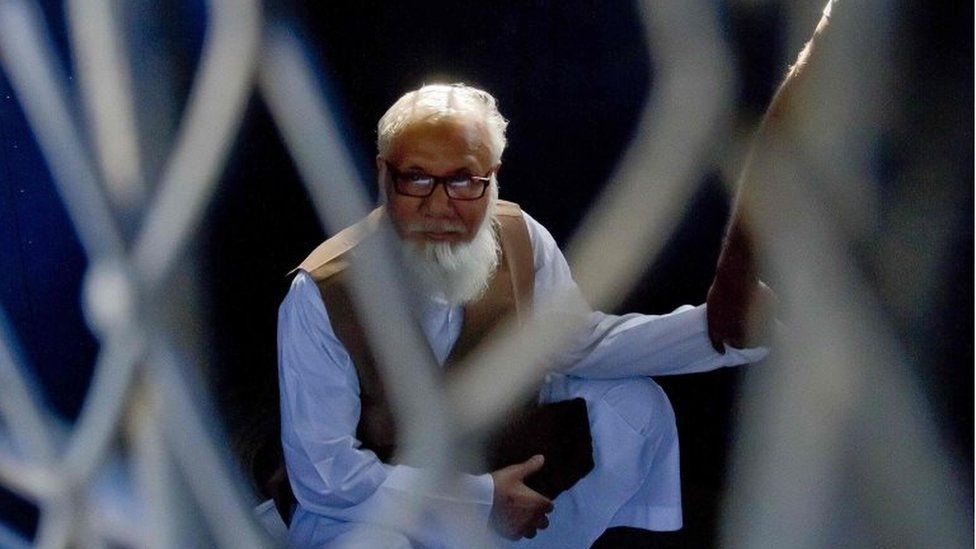Bangladesh Islamist leader Motiur Rahman Nizami loses final appeal
- Published

The head of Bangladesh's largest Islamist party has lost a final appeal against his death sentence for atrocities committed during the war of independence from Pakistan in 1971.
Motiur Rahman Nizami, 72, was seeking a review of the Supreme Court decision to uphold a war crimes tribunal verdict.
He was convicted of genocide, rape and torture, charges the defence said were not proven beyond reasonable doubt.
Unless he seeks clemency from the president he could be hanged in days.
His party responded to the Supreme Court decision by calling a nationwide strike for Sunday and has said it will hold street protests. Security has been tightened across the country.
"All the legal battles are over," a lawyer for Nizami told reporters. "Now it is up to him, whether he will seek clemency from the president, or not."
Correspondents say it is unlikely clemency would be granted, even were Nizami to appeal.
Four politicians have so far been hanged for war crimes since the controversial tribunal was set up in 2010. Scores of people have been killed in violence following previous judgements.
Security personnel gather on Thursday near graffiti on a Dhaka road relating to the war crimes trials
Bangladesh independence war, 1971
Civil war erupts in Pakistan, pitting the West Pakistan army against East Pakistanis demanding autonomy and later independence
Fighting forces an estimated 10 million East Pakistani civilians to flee to India
In December, India invades East Pakistan in support of the East Pakistani people
Pakistani army surrenders at Dhaka and its army of more than 90,000 become Indian prisoners of war
East Pakistan becomes the independent country of Bangladesh on 16 December 1971
Exact number of people killed is unclear - Bangladesh says it is three million but independent researchers put the figure at up to 500,000 fatalities
Prime Minister Sheikh Hasina set up the war crimes tribunal to look into abuses during the independence war.
Nizami, a former government minister, is one of the most important figures to be found guilty.
He was convicted of setting up a militia which helped the Pakistani army identify and kill pro-independence activists.
Opponents of independence argued at the time that it would divide the Muslim community, and many feared that an independent Bangladesh would come under the political and economic influence of neighbouring India.
Critics have said the government is using the tribunal to target political opponents. Human Rights Watch has previously said the court's procedures are not up to international standards.
The Awami League, which leads the current government, says it is necessary to help the country come to terms with its past.
- Published4 September 2016
- Published21 January 2013
- Published12 December 2013
- Published13 December 2011